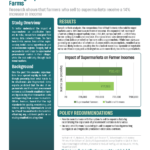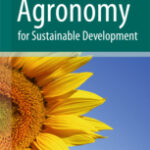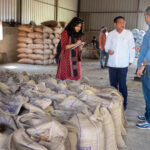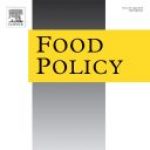Tag: Prabhu Pingali

Making Supermarkets Profitable for India’s Small Farms
This policy brief presents the results of a study examining the impact of supermarkets on smallholder farmers in India. Using field survey data collected from 795 farm households across four states representing India’s varied agroclimatic and socioeconomic regions, researchers found that farmers who sold to...

TCI Publishes 2023–24 Annual Report
The Tata-Cornell Institute for Agriculture and Nutrition (TCI) has published its 2023–24 Annual Report.
The report offers an in-depth look at the full range of TCI’s research and other activities, including projects like Zero-Hunger, Zero-Carbon Food Systems, and field research…

Do Supermarkets Help India’s Small Farmers? It Depends.
When supermarkets first began spreading across India, they brought hope that smallholder farmers could make more money by selling them fresh, high-quality produce. Decades later, has that benefit materialized?
New research from the Tata-Cornell Institute for Agriculture and Nutrition (TCI)…

Determinants and Income Effects of Small Farmers Selling to Supermarkets versus Traditional Market Channels in Four Regions of India
Abstract Read a policy brief based on this study. Using endogenous switching regressions to calculate transitional heterogeneity which we have used to build counterfactual scenarios to identify the treatment effects for both sellers to supermarkets and sellers to traditional markets, the results support neither a...

Transitions to Crop Residue Burning Have Multiple Antecedents in Eastern India
Abstract Far removed from the agricultural fire “hotspots” of Northwestern India, rice residue burning is on the rise in Eastern India with implications for regional air quality and agricultural sustainability. The underlying drivers contributing to the increase in burning have been linked to the adoption...

FPOs Would Get Boost from Centralized Database
India is betting big on farmer producer organizations (FPOs) to boost its agricultural sector and improve the livelihoods of smallholder farmers, but its efforts would be enhanced by the creation of a centralized system of tracking FPOs, according to the…

Prabhu Pingali Named a Foreign Fellow of the Indian National Science Academy
Prabhu Pingali, director of the Tata-Cornell Institute for Agriculture and Nutrition, was elected as a foreign fellow of the Indian National Science Academy (INSA). Foreign fellows are individuals who do not live in India and are renowned for their contributions…

TCI Researchers to Discuss New Book on India’s Social Safety Nets
UPDATED Oct. 25: A recording of the book talk is now available on YouTube.
The authors of The Future of India’s Social Safety Nets: Focus, Form, and Scope will discuss their new book at a “Chats in the Stacks” book…

Women’s Empowerment and Intra-Household Diet Diversity Across the Urban Continuum: Evidence from India’s DHS
Abstract Read a policy brief based on this study. Women’s empowerment has been associated with improved nutritional outcomes in various settings. However, the gains from empowerment do not necessarily accrue to different members of the same household in the same manner. Furthermore, the relationship between...

Empowerment Programs Can Improve Nutrition of Women Left Behind by India’s Urban Transformation
New research from the Tata-Cornell Institute for Agriculture and Nutrition (TCI) reveals that Indian efforts to improve household nutrition through women’s empowerment could have a greater impact with a more targeted approach that takes into account different levels of urbanization. …

